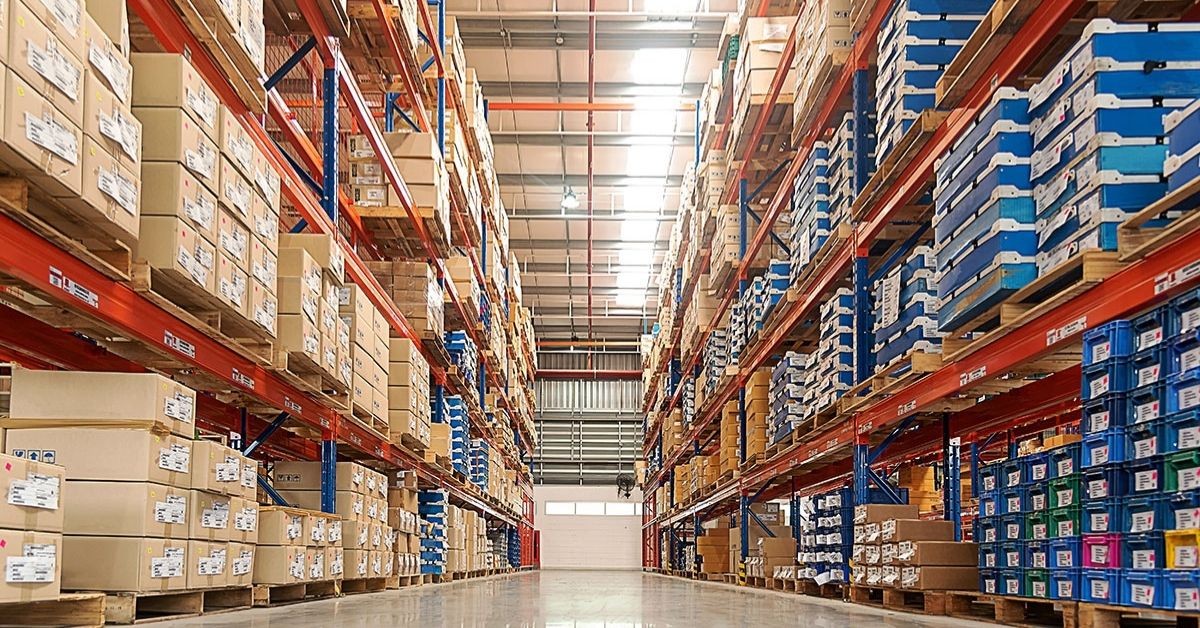New e-commerce freezone Dubai CommerCity (DCC) has launched 470,000 sq ft of new facilities as part of its first stage, it announced on Sunday.
Spread across 2.1 million sq ft in Dubai’s Umm Ramool area, the Dhs3.2bn development claims to be the first dedicated e-commerce freezone in the Middle East, North Africa and South Asia (MENASA) region.
Divided into three main clusters – business, logistics and social, the freezone aims to attract global and regional manufacturers, as well as distributors and global e-retailers while offering tax and investment incentives.
The launch of the new phase includes a built-up area of over 320,000 sq ft of offices spaces in the business cluster.
It also includes 145,000 sq ft e-commerce logistics units and multi-client warehouses in the logistics cluster, which will be managed and operated by Hellmann Worldwide Logistics and DHL.
Hellmann will provide end-to-end warehousing services like order management systems and streamlined customs clearance processes and offer last mile delivery services through its partner DHL Express, from the warehouse directly to the consumer.
Dubai CommerCity will also offer storage options and a pay-as-you-go payment model to ensure ‘cost efficiency’ and ‘flexibility’.
It also also has signed partnership agreements with e-commerce software provider Magento Commerce and digital consultancy Redbox Digital to offer ‘e-commerce-as-a-service’ offerings including special rates on key Magento software, pre-integration with payment gateways, third party logistics systems, marketing affiliates and analytics tools. Project services such as consultancy, discovery and requirements building, as well as testing major and minor customisations will also be provided by Redbox.
Dubai CommerCity has so far leased more than 51 per cent of the logistics warehouses to companies launching their operations in different sectors, ranging from e-commerce, logistics and information technology to fashion, jewelry and electronics, a statement said.
“The launch of the new Dubai CommerCity facilities comes in line within the planned schedule,” said Dr Mohammed Al Zarooni, director general of Dubai Airport Freezone Authority (DAFZA).
“Despite the global circumstances and the challenges posed by the Covid-19 pandemic, we have witnessed an urgent need to build a world-class e-commerce platform. It is set to attract specialised companies aiming to establish their regional headquarters in the emirate of Dubai, which helps them expand and develop their regional operations to be able to keep pace with the significant growth in e-commerce.”
The global e-commerce sector is expected to grow 16.6 per cent CAGR between 2019 and 2022, while the Middle East, Africa and South Asia region is anticipated to see 18.4 per cent during that period. Numbers in the MENA and GCC region are higher, at 24.9 per cent and 32.9 per cent respectively.
“The launch of Dubai CommerCity aims to lead the future of e-commerce business in the region,” said Sheikh Ahmed Bin Saeed Al Maktoum, chairman of DAFZA.
“The project has been thoroughly studied not only to provide foundational solutions, but also to stimulate and support business and prosperity at a time when the sector is going through peak growth.”
The e-commerce industry has proven to be a key enabler of growth for companies and a new module adopted by many businesses, especially during the pandemic.
The acceleration of digital transformation within supply chains and trade during the Covid crisis has also spurred companies to ensure continued operations, he stated.
“The e-commerce sector is key as its value is expected to reach $148.5bn by 2022 in the MEASA region. The GCC region is the fastest growing in the e-commerce sector, and the UAE comes in second place as it is expected to grow 38.3 per cent CAGR. The UAE is also ranked the fifth largest B2C products e-commerce market in sales within the Middle East, Africa and South Asia region, valued at $4bn,” said Sheikh Ahmed.
UAE companies in e-commerce account for 6 per cent of the list of the 100 largest companies in the sector within the MEASA region, he added.
Source : Gulf Business







